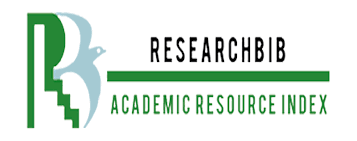Effects of the post-COVID-19 syndrome on mental health in children and adolescents
DOI:
https://doi.org/10.35622/j.rep.2022.02.001Keywords:
adolescence, effects, childhood, post COVID-19 syndromeAbstract
A large percentage of people who have been infected by the SARS CoV-2 virus that causes the known COVID-19 pandemic and its variants demonstrate that they have had a duration of more than 12 weeks with symptoms related to the illness. Children, girls, and adolescents cannot cope with this situation, being a population vulnerable to the prolonged effects of the virus. This study aims to carry out a descriptive investigation of the impacts of the post-COVID-19 syndrome on children and adolescents in the educational institutions of the locality of La Candelaria. For this, a documentary investigation of outstanding scientific articles on the study of the post-COVID-19 syndrome in childhood and adolescence is carried out. A survey was applied that grouped the data of the minors who had suffered the illness after 12 weeks. The investigations on the topic point out that the disease of the syndrome post-COVID-19 in children has low risk, but in adolescents and young adults, the possibility of suffering the prolongation of signs and symptoms of the virus increases.
Estadísticas del Artículo
References
American Academy of Pediatrics. (2021). Post-COVID-19 conditions in children and adolescents. https://bit.ly/345qo6D
Arias, F. (2006). El Proyecto de Investigación. introducción a la metodología científica (5a). Episteme.
Behnood, S., Shafran, R., Bennett, S., Zhang, A., O’Mahoney, L., Stephenson, T., Ladhani, S., De Stavola, B., Viner, R., & Swann, O. (2022). Persistent symptoms following SARS-CoV-2 infection amongst children and young people: A meta-analysis of controlled and uncontrolled studies. Journal of Infection, 84(2), 158-170. https://doi.org/10.1016/j.jinf.2021.11.011
Blankenburg, J., Wekenborg, M., Reichert, J., Kirsten, C., Kahre, E., Haag, L., Schumm, L., Czyborra, P., Berner, R., & Armann, J. (2021). Mental health of adolescents in the pandemic: long-COVID-19 or long-pandemic syndrome? SSRN Electronic Journal. https://doi.org/10.2139/ssrn.3844826
Blomberg, B., Mohn, K., Brokstad, K., Zhou, F., Linchausen, D. W., Hansen, B., Lartey, S., Onyango, T. B., Kuwelker, K., Sævik, M., Bartsch, H., Tøndel, C., Kittang, B., Madsen, A., Bredholt, G., Vahokoski, J., Fjelltveit, E., Bansal, A., Trieu, M. C., … Langeland, N. (2021). Long COVID in a prospective cohort of home-isolated patients. Nature Medicine, 27(9), 1607-1613. https://doi.org/10.1038/s41591-021-01433-3
Buonsenso, D., Munblit, D., De Rose, C., Sinatti, D., Ricchiuto, A., Carfi, A., & Valentini, P. (2021). Preliminary evidence on long COVID in children. Acta Paediatrica, 110(7), 2208-2211. https://doi.org/10.1111/apa.15870
Giraldo, C., Tamayo, C., López, E., Caicedo, M., & Piñeres, B. (2020). Síndrome inflamatorio multisistémico en niños asociado a COVID-19. Revisión narrativa de la literatura a propósito de un caso. Acta Colombiana de Cuidado Intensivo. https://doi.org/10.1016/j.acci.2020.11.002
Hernández, R., Fernández, C., & Baptista, P. (2014). Metodología de la investigación. Mc Graw Hill.
Instituto Nacional para la Excelencia en la Salud y la Atención. (2020). COVID-19 rapid guideline: managing the longterm effects of COVID-19. https://bit.ly/3CaMH7x
Ludvigsson, J. (2021). Case report and systematic review suggest that children may experience similar long‐term effects to adults after clinical COVID‐19. Acta Paediatrica, 110(3), 914-921. https://doi.org/10.1111/apa.15673
Miller, F., Nguyen, V., Navaratnam, A., Shrotri, M., Kovar, J., Hayward, A., & Fragaszy, E. (2021). Prevalence of persistent symptoms in children during the COVID-19 pandemic: evidence from a household cohort study in England and Wales. MEdRxiv. https://doi.org/10.1101/2021.05.28.21257602
Molteni, E., Sudre, C., Canas, L., Bhopal, S., Hughes, R., Antonelli, M., Murray, B., Kläser, K., Kerfoot, E., Chen, L., Deng, J., Hu, C., Selvachandran, S., Read, K., Capdevila, J., Hammers, A., Spector, T., Ourselin, S., Steves, C., … Duncan, E. (2021). Illness duration and symptom profile in symptomatic UK school-aged children tested for SARS-CoV-2. The Lancet Child & Adolescent Health, 5(10), 708-718. https://doi.org/10.1016/S2352-4642(21)00198-X
Nogueira, J., Grasa, C., Calvo, C., & García, M. (2021). Long‐term symptoms of COVID‐19 in children. Acta Paediatrica, 110(7), 2282-2283. https://doi.org/10.1111/apa.15849
Organización Mundial de la Salud. (2020). Síndrome inflamatorio multisistémico en niños y adolescentes con COVID-19. https://bit.ly/3IRT0Qd
Papalia, D., Wendkos, S., & Duskin, R. (2017). Desarrollo Humano (Undecima e). Mc Graw Hill.
Thomson, H. (2021). Children with long covid. New Scientist, 249(3323), 10-11. https://doi.org/10.1016/S0262-4079(21)00303-1
Zimmermann, P., Pittet, L., & Curtis, N. (2021). How common is long COVID in children and adolescents? Pediatric Infectious Disease Journal, 40(12), e482-e487. https://doi.org/10.1097/INF.0000000000003328
Published
Issue
Section
License
Copyright (c) 2022 Victor Guzmán-Brand (Autor/a)

This work is licensed under a Creative Commons Attribution 4.0 International License.
La Revista Estudios Psicológicos del Instituto Universitario de Innovación Ciencia y Tecnología Inudi Perú está sobre una licencia internacional Creative Commons Atribución 4.0. Lo que permite que los archivos sean de libre acceso y distribuidos libremente.
LOS AUTORES RETIENEN SUS DERECHOS:
- Los autores retienen sus derechos de marca y patente, y tambien sobre cualquier proceso o procedimiento descrito en el artículo.
- Los autores retienen el derecho de compartir, copiar, distribuir, ejecutar y comunicar públicamente el artículo publicado en la Revista Estudios Psicológicos (por ejemplo, colocarlo en un repositorio institucional o publicarlo en un libro), con un reconocimiento de su publicación inicial.
- Los autores retienen el derecho a hacer una posterior publicación de su trabajo, de utilizar el artículo o cualquier parte de aquel (por ejemplo: una compilación de sus trabajos, notas para conferencias, tesis, o para un libro), siempre que indiquen la fuente de publicación (autores del trabajo, revista, volumen, número y fecha).



















